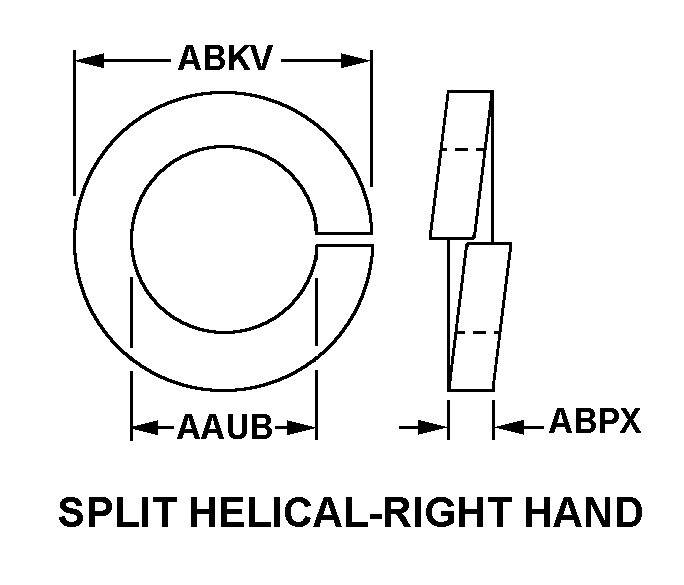5310000502342
Price Quote Get an up to date pricing and availability quote for this product. Order online or over the phone.
Quality Commitment
Serving our customers with quality and safety first.
- AS9120 Certified
- Audited supply chain
- ITAR Registered
- DDTC Registered
- HAZMAT Certified
- Customer service objectives
- Every product 100% inspected

5310-00-050-2342 Specification Set by the OEM (see RNCC code 3)
0.509in. and 0.523in. ⁓17/32"
0.939in.
0.162in. and 0.172in.
45.0 rockwell c and 53.0 rockwell c
steel comp 1060 or steel comp 1561 or steel comp 1064 or steel comp 1065 or steel comp 1566 or steel comp 1069 or steel comp 1070 or steel comp 1071 or steel comp 1572 or steel comp 1074 or steel comp 1075 or steel comp 1078 or steel comp 1080
66 fed std all material responses
cadmium or zinc
QQ-P-416 fed spec 1st treatment response or QQ-Z-325 fed spec 2nd treatment response
split HELICAL-Right hand
4 style and a class
Cross Reference Parts Part numbers that meet the specification outlined on this page and set by the OEM
Identification Item Identification Guide (IIG) and Item Name Code (INC)

Definition Definition of approved item name (AIN): "WASHER,LOCK"
A washer which is usually round with a centrally located hole. Its edges and two bearing surfaces are so designed that applied pressure brings into play the spring tension and/or frictional locking principle which materially resists any tendency toward turning. It may be made of one or two pieces
5310-00-050-2342 Material Hazmat, Precious Metals, Criticality, Enviroment, and ESD
Indicates there is no data in the hmirs and the nsn is in a fsc not generally suspected of containing hazardous materials.
Precious metal content is unknown
The item does not have a nuclear hardened feature or any other critical feature such as tolerance, fit restriction or application.
Identification Codes
HMIC: Hazardous Material Indicator Code. A one position code that identifies a hazardous item.
PMIC: Precious Metal Indicator Code. A one position code which identifies items that have precious metals as part of their content. precious metals are those metals generally considered to be uncommon, highly valuable, and relatively superior in certain properties such as resistance to corrosion and electrical conductivity.
ESD: Electrostatic Discharge. Indicates if an item is susceptible to electrostatic discharge or electromagnetic interference damage. electrostatic discharge damage occurs when an accumulation of static electricity generated by the relative motion or separation of materials is released to another item by direct contact. electromagnetic interference damage occurs when an item comes into proximity with an electrostatic or magnetic field.
ENAC: Enviromental Attribute Code. Identifies items with environmentally preferred characteristics.
CRITL: Criticality Indicator Code. Indicates an item is technically critical by tolerance, fit, application, nuclear hardness properties, or other characteristics.






